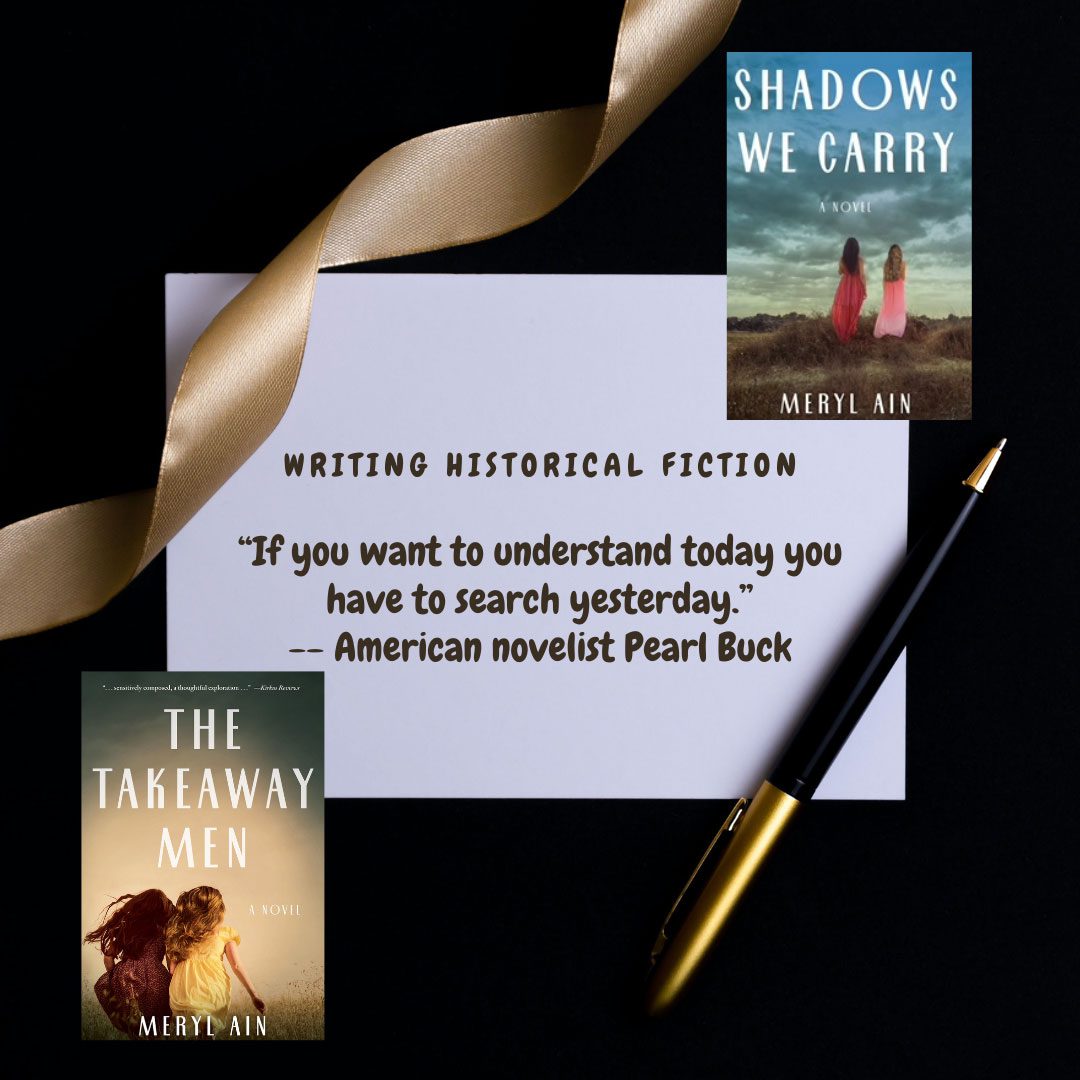In early 2021, when I started writing Shadows We Carry, the sequel to The Takeaway Men, I set out to continue the story of the Lubinski twins — Bronka and JoJo — as they finished college and became adults. I’d gotten numerous requests from readers who wanted to know what happened to the girls after the first book ended in 1962 when they were fifteen. In the sequel, the sisters come of age on the cusp of momentous change for women as the U.S. is in the grip of political and social upheaval. As a student and teacher of history and a writer of Historical Fiction, I wanted to recreate what it was like for young women in the late ‘60s and ‘70s and show the obstacles they experienced.
For example, Bronka applies to Columbia Graduate School of Journalism and learns that there is a quota for female candidates. The dean of admissions tells her that only 20 women will be accepted. He says to her: “…I ask every woman this question and I must ask it of you too. ‘Do you plan on getting married and having a family? You see, because our enrollment is so limited, we want the women we admit to stay in the field. It’s been our experience that women don’t have the same staying power as men in the profession once they have a family. It’s a fact.’”
Nowadays, quotas on women are a thing of the past. This was powerfully demonstrated by the many eulogies applauding Barbara Walters, who died on New Year’s Eve, for being a role model and trailblazer for women in TV journalism. You have only to turn on the television today to observe the many women who have followed in her footsteps and achieved prominence. And women have made great strides, not only in journalism but in other fields as well.
But history does not always have a forward trajectory. When I wrote the first draft of Shadows We Carry, JoJo is in college and finds herself with an unwanted pregnancy four years before Roe v. Wade, the Supreme Court decision that made abortion the law of the land. Her friends discuss with her the limited options that are available to her at the time – some of them life threatening. When the Supreme Court shockingly overturned this landmark decision in June 2022, I actually had to revise my author’s notes at the end of the book to reflect this change.
Another example of history repeating itself is the theme of antisemitism, which runs through the novel. As they did in The Takeaway Men, Bronka and JoJo continue to grapple with their family Holocaust legacy and the scars of World War II that their parents bear. Rather than being able to report that antisemitism is a thing of the past, Bronka, in her first hard news assignment, encounters neo-Nazis at an event on Long Island. We soon learn that there are still many Nazis hiding in plain sight during the time period of the book.
Sadly, as we begin a new year, antisemitism is on the upswing and haters have come out of hiding. The ADL has reported record breaking numbers of incidents during the past five years.
While Historical Fiction blends elements of fictional narrative and historical fact, it enables us to raise questions that are both timely and timeless. I hope that Shadows We Carry will encourage you to ask more questions – both about the past and present. I am reminded of the words of American novelist Pearl Buck: “If you want to understand today you have to search yesterday.”


I need to read your books